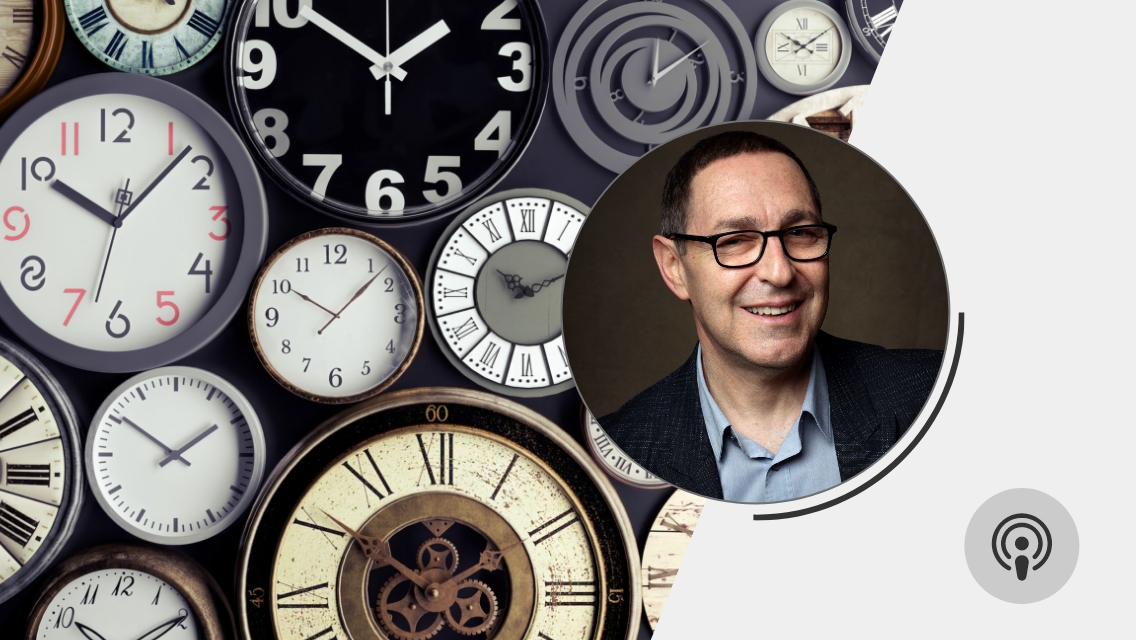There’s no shortage of advice out there about the dos and don’ts of nutrition — and keeping up with how those recommendations should or shouldn’t change as you age can be a challenge. And according to experts, you can’t believe everything you hear, either.
“There are some widely accepted concepts out there that can sometimes cause more harm than help,” says Paul Kriegler, RD, CPT, director of nutritional product development at Life Time.
We asked Kriegler to help us debunk some common myths, provide the facts, and offer some practical nutrition recommendations as we age.
Myth No. 1: Older adults need less protein than younger people because they’re less active.
Fact: Your protein needs actually increase as you get older. There are a few reasons for this.
“As we age, our ability to digest protein becomes less efficient, which means we need more to support the functions in our body,” Kriegler says. “Lean muscle and bone density loss also increase as we get older, especially if you’re not eating enough calories or protein. One of the most important things you can do to combat this is to make sure you’re consuming enough quality protein.”
What “enough” protein means can be different for different people, Kriegler explains.
“The amount your body requires depends on a number of factors, including how active you are,” he says. “Aiming to consume one gram of protein per pound of your body weight per day to support your muscle tissue growth, repair, and performance is a good starting point for active individuals.”
Getting ample protein can also help you feel more satisfied after meals, and improve body composition; it’s also an important factor in your body’s natural detoxification process.
If you’re looking to increase your protein intake, Kriegler recommends the following:
- Aiming for at least 30 grams of protein at each meal
- Eating protein-rich foods first during meals
- Supplementing when needed with protein powder
Learn more: “How Much Protein Do I Need?”
Myth No. 2: Older adults need to limit their salt intake.
Fact: You’ve likely heard of people limiting their salt intake to improve their blood pressure, but Kriegler warns that, for most, restricting salt in your diet can cause more issues.
“Too little salt in your diet can lead to several health problems, including insulin resistance, carbohydrate intolerance, dizziness, and increased fall risk with instability,” Kriegler explains. “It’s also known to increase sugar cravings. Unless you have certain medical conditions (notably including kidney disease), adequate levels of sodium in your diet is essential for your health.
“Only around 50 percent of people see improvements in blood pressure with salt restriction, and improvements are usually minimal,” Kriegler adds. “More specifically, studies show that sodium restriction only seems to help mildly lower blood pressure in those with insulin resistance. Those with normal insulin sensitivity see no improvements from strict salt avoidance.”
As with many eating recommendations, the quality and source of salt matters. The refined salt used to season many of the processed foods available today can be problematic — but salt is not typically an issue when it comes to the healthy forms used to complement a whole-foods eating approach.
“If you’re consuming fewer highly processed foods and more wholesome, potassium-rich fruits and veggies, you probably have more latitude to season your meals with extra salt — especially if you sweat regularly,” Kriegler advises. “We can lose one to two grams (1,000 to 2,000 milligrams) of sodium per hour of sweating.”
Learn more: “Salt’s Place In a Healthy Diet” and “6 Misconceptions About Blood Pressure to Rethink”
Myth No. 3: It’s too late for me to start healthier nutrition habits and for them make a difference for my health.
Fact: No matter your age, it’s never too late to shift your habits or explore healthier ways of living.
“Your body is constantly reevaluating and renewing itself even into older adulthood,” says Kriegler. “If you’re getting adequate nutrition — especially protein — every structure in your body rebuilds itself three to four times per year, so the sooner you start making healthier nutrition choices, the sooner you’ll feel a difference in your muscles and bones.”
If you’re looking to focus on healthier nutrition, here are some of Kriegler’s top tips (beyond the No. 1 tip of getting enough protein) for getting started:
- Fill up on fibrous produce: High intake of fiber-filled veggies is associated with lower rates of chronic disease. This type of produce is nutrient-dense, highly satiating, and hydrating for the body. (Learn more: “How to Eat More Veggies”)
- Hydrate well: Aim for half an ounce of water per pound of your body weight per day. And if you’re exercising that day, you’ll need about an extra 16 to 24 ounces. (Learn more: “Why Hydration?”)
- Build a better plate: When filling your plate for a meal, aim for the four building blocks of protein, healthy fats, vegetables, and complex carbohydrates. (Learn more: “How to Build a Healthy Plate”)





